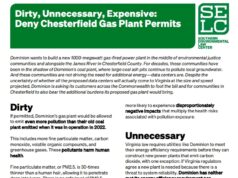by A Siegel
President Biden’s first two weeks have been busy, productive, and exciting. Mehdi Hasan is not alone in concluding that “Biden’s first days in office were way better than I expected.” So many impressive (capable, ethical, experienced, passionate) appointees. Fair, but firm, engagement as to calls for “bipartisan” to undermine progress (as opposed to unity for moving ahead with the best policies possible for Americans). And, substantive executive order after executive order after executive order. It has been (and likely will be) hard to keep up with how the Biden-Harris Administration is flooding the zone to right the nation post Trump’s occupation of the Oval Office and to Build Back Better amid/from five (COVID, Unemployment, Equity / Justice, Climate, AND Democracy) crises.
In terms of keeping up, while breathlessly moving from one significant action and statement to another, it can be difficult to step back to consider broader implications from an Executive Order. For example, very few Americans have even heard of what could turn out to be one of the most critical items within President Biden’s executive orders: changing the charter of the Office of Management and Budget’s (OMB’s) Office of Information and Regulatory Affairs (OIRA). In a few words, OIRA has been the place for good things go to die — since the Reagan Administration. The first day in the Biden Presidency Modernizing Regulatory Review EO pretty much seeks to turn that on the head, to make OIRA a partner with the rest of the U.S. government with a “regulatory review process [structured to] promote public health and safety, economic growth, social welfare, racial justice, environmental stewardship, human dignity, equity, and the interests of future generations.” No longer backward-looking, inherently overly-conservative “cost-benefit analyses” to put breaks on good policy but developing ways to understand and foster multisolving as a tool to accelerate good policy and good program development and execution.
In a less obscure first day EO, President Biden revoked the Keystone XL pipeline’s permit. Putting aside the inevitable Republican fossil foolish lies and deceit about job implications, reading the justification for that EO makes clear that this isn’t about Keystone XL but, fundamentally, about the future of new (major) fossil fuel infrastructure projects across the country where Federal regulatory review is a (significant) part of the process. From that EO

Restoring Science to Tackle the Climate Crisis, 20 January 2021
“the United States must prioritize the development of a clean energy economy, which will in turn create good jobs. … the … pipeline would undermine U.S. climate leadership by undercutting the credibility and influence of the United States in urging other countries to take ambitious climate action.
“(c) Climate change has had a growing effect on the U.S. economy, with climate-related costs increasing over the last 4 years. Extreme weather events and other climate-related effects have harmed the health, safety, and security of the American people and have increased the urgency for combatting climate change and accelerating the transition toward a clean energy economy. The world must be put on a sustainable climate pathway to protect Americans and the domestic economy from harmful climate impacts, and to create well-paying union jobs as part of the climate solution.
“(d) The Keystone XL pipeline disserves the U.S. national interest. The United States and the world face a climate crisis. That crisis must be met with action on a scale and at a speed commensurate with the need to avoid setting the world on a dangerous, potentially catastrophic, climate trajectory. At home, we will combat the crisis with an ambitious plan to build back better, designed to both reduce harmful emissions and create good clean-energy jobs. Our domestic efforts must go hand in hand with U.S. diplomatic engagement. Because most greenhouse gas emissions originate beyond our borders, such engagement is more necessary and urgent than ever. The United States must be in a position to exercise vigorous climate leadership in order to achieve a significant increase in global climate action and put the world on a sustainable climate pathway. Leaving the Keystone XL pipeline permit in place would not be consistent with my Administration’s economic and climate imperatives.”
The EO’s Section 6 is explicitly about the Keystone XL pipeline but actually is about so much more. With the exception of the referencing to the 2015 review of the pipeline advising against it, read those words and consider whether they would be relevant to essentially any other fossil fuel infrastructure project (pipeline, liquid methane (LNG) export terminal, gas power plant, …). The Dakota Access Pipeline (DAPL) undercuts the ability for the U.S. to lead on climate change globally. Enbridge’s Line 3 is not “consistent with [the Biden] Administration’s economic and climate imperatives”. The Mountain Valley Pipeline (MVP) “disserves the U.S. national interest.” Read the justification for revoking the Keystone XL pipeline’s permit makes clear that the game has changed for any and all fossil fuel projects that require Federal permitting for moving forward. While this doesn’t mean an end to all fossil fuel projects, it certainly makes clear that “interference” could put at risk (put an end to) many.
And, professionals are taking notice. For example, “Interference risks” to DAPL, Line 3, and MVP were raised by Fitch Ratings as having credit implications for involved firms. (E.g., investors and bankers take note!)
Investors are learning what we all knew a long time ago: the Mountain Valley Pipeline will never be completed!
"Fitch remains concerned about execution of the project."#NoMVP @AppVoices @AppYouthCo @stopthemvp @GreenNewDealVA https://t.co/a9liX2NGam
— Jonathan Sokolow (@JonSokolow) January 29, 2021
When it comes to Virginia, the MVP seems prime for the Keystone XL treatment.
- A questionable permit allowing carving through National Parks and forests (crossing the Appalachian Trail);
- Being built in difficult terrain where the risk — and reality — of accidents is high;
- Questionable business case justification, other than soaking up ratepayer payments for unnecessary infrastructure;
- Almost certain future stranded/minimally use asset status; and,
- Serious negative climate change implications.
Delay, delay, delay – until this pipeline is gone for good! 💪 https://t.co/95fIk8QNBM
— Chesapeake Climate (@CCAN) January 27, 2021
You have the power to end a dangerous gas pipeline.
Save $$$ & ⬇️GHGs
Why let this drag on for another year before it falls apart?
End the Mountain Valley Pipeline mistake @GovernorVA @VirginiaDEQ @AGMarkHerring @NatResourcesVA #NoMVP #NoMVPSouthgate #NoChathamSacrifice https://t.co/n6mmsBB7W0
— Dr. Mary Finley-Brook 🕷🕸 🌍 (@geoyapti) January 23, 2021
All of the above were true about the Atlantic Coast Pipeline, which Dominion finally retreated from last June. Regrettably, the Virginia government — which has the legal authority to do so — has been stoic in supporting unnecessary and polluting gas pipelines. While these pipelines are at odds with implementation of any serious Virginia climate plan and path forward, the glaring absence of leadership from Richmond might be taken care of by Washington as the Biden Administration examines egregiously fossil foolish infrastructure projects and decides which merit The Keystone Treatment. When it comes to this, the MVP has to rank as an MVP (Most Viable Project) to lose its permits.













